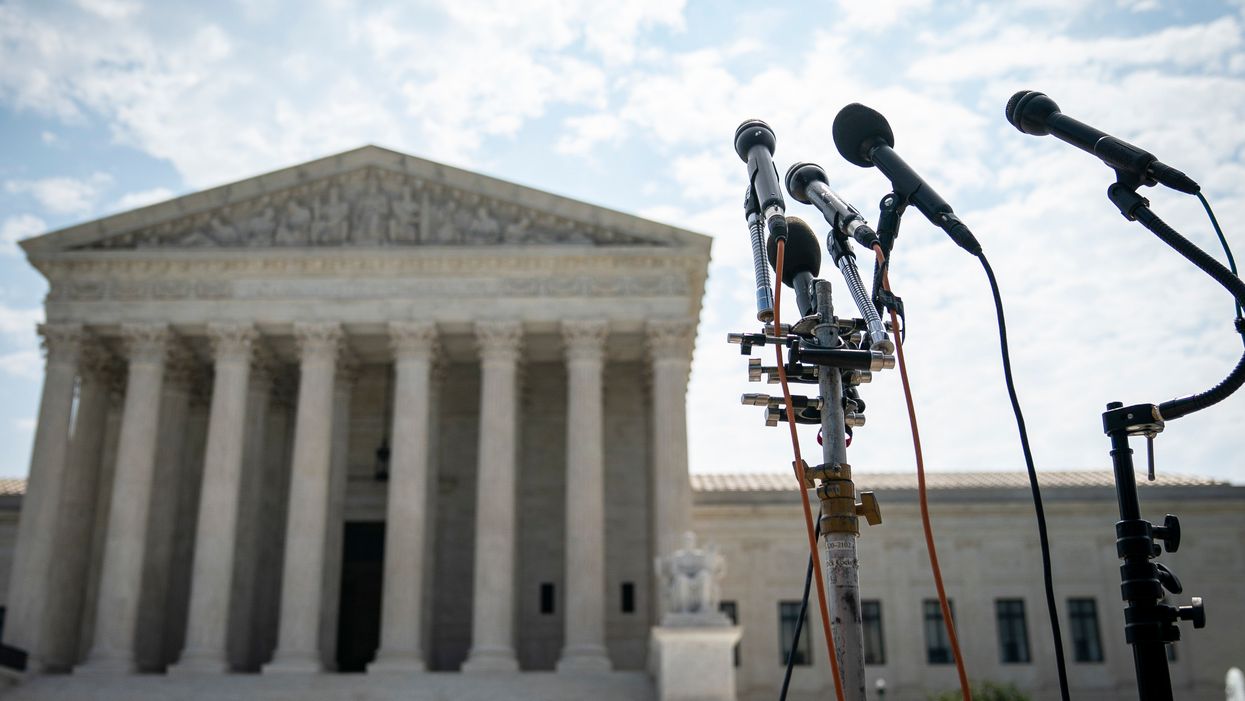Sarat is a professor of jurisprudence and political science at Amherst College.
This week the Supreme Court did something that in recent years has become extraordinary: It issued a unanimous decision in a high-profile case — and also the one getting the most attention from those worried about our dysfunctional democracy this year.
The unanimity aside, however, the ruling was much ado about an important but relatively narrow flaw in the system. And it obscured some serious and continuing worries about the court, the current political climate and our electoral democracy.
The court said states could impose penalties on so-called faithless electors. Thirty-two states and the District of Columbia require members of the Electoral College to pledge they will vote for the presidential candidate who receives the most votes in their jurisdiction.
A faithless elector is one who violates that pledge and claims the right to substitute personal judgment in casting electoral votes. However, 16 states and D.C. impose no penalties on such electors for violating their promise. And most have no way of preventing an elector from acting in such a manner. The laws of five states provide a financial penalty, and 13 allow a wayward vote to be cancelled.
In the whole history of the country, there have been just 180 faithless electors out of more than 23,000 votes cast. But the outcomes in five previous elections, and as recently as 2000, could have been changed by a swing of only 10 electors.
Four years ago, 10 of them voted or attempted to vote for a candidate different from the person to whom they were pledged. Eight were Democrats. Two were Republicans.
Some voted for Colin Powell for president and hoped to encourage an Electoral College rebellion in states won by Donald Trump. They wanted others to follow their example and deny him an electoral vote majority. Washington fined one $1,000 and Colorado replaced another on the state's electoral college slate.
Such efforts are mere band-aids on a larger wound -- one that requires far more serious attention.
The decision in Chiafalo v. Washington remedied the problem of electors who would cast ballots according to whim. But it is not much of a victory for democracy, nor does it correct the Supreme Court's anti-democratic record over the past 15 years under Chief Justice John Roberts.
During oral argument, the electors' lawyers made the rather strange argument that instructing members of the Electoral College to vote in a particular way, and penalizing them for using their own judgment, were incompatible with democratic values.
Justice Elena Kagan decisively repudiated that argument in her majority opinion. She noted that in long-established democratic practice "presidential electors became trusty transmitters of other people's decisions." That "reflects a tradition more than two centuries old," she wrote. "In that practice, electors are not free agents; they are to vote for the candidate whom the state's voters have chosen."
She said the 12th Amendment, which has governed the presidential election process since 1804, "embraced this new reality— both acknowledging and facilitating the Electoral College's emergence as a mechanism not for deliberation but for party-line voting."
And she concluded that this reality accords not only with the Constitution but also "with the trust of a nation that here, We the People rule."
This encomium to popular sovereignty and Monday's ruling do not mean that the Supreme Court will now provide needed help in the urgent work of defending our electoral process.
Patching defects in the Electoral College cannot compensate for the Roberts Court's string of decisions that compounded the already serious problems confronting the American political system. Included in that list are Citizens United v. FEC, which opened the door in 2010 to big money influence in elections; Shelby County v. Holder, which in 2013 gutted the protections afforded by the 1965 Voting Rights Act; and Ruchio v. Common Cause, last year's turning back of all challenges in federal court to partisan gerrymandering.
As District Judge Lynn Adelman recently noted, the Roberts Court's "hard right majority is actively participating in undermining American democracy."
Much needs to be done to translate Kagan's words about popular rule into a meaningful program for repairing and restoring our democracy.
That work starts by addressing the looming problems of the 2020 election, from voter suppression to the absence of vote by mail options in many states. And given this nation's deep political divisions, action needs to be taken to prevent supporters of the losing candidate from trying to get enough electors to deviate from the popular vote to throw the election to the candidate who lost that vote.
Scholars and commentators are already contemplating such doomsday scenarios. They point to the very real prospect that Trump may lose and yet try to cling to power. One scenario highlights the possible effort to get Republican-controlled legislatures to appoint Republican electors in states carried by former Vice President Joe Biden.
Legislatures must act expeditiously to forestall such efforts. The 18 states that do not now require their electors to pledge to vote for the popular vote winner should do so before November. States which do not impose any penalty for non-compliance should do so as well.
However, neither the faithless elector decision nor those reforms addresses the fundamental problems of the Electoral College itself, including its association with the defense of slavery and with an anti-democratic strain of American politics. As George Mason of Virginia, one of its early defenders, explained, the Electoral College was needed because the people did not "have the requisite capacity to judge the respective pretensions of the candidates."
It is time to repudiate that view and close the Electoral College. As former South Bend., Ind., Mayor Pete Buttigieg observed during his presidential campaign, "Most Americans, of any party, ought to be able to get on board with the idea that one person, one vote, counting equally, is the fairest way to choose our president."




















Trump & Hegseth gave Mark Kelly a huge 2028 gift